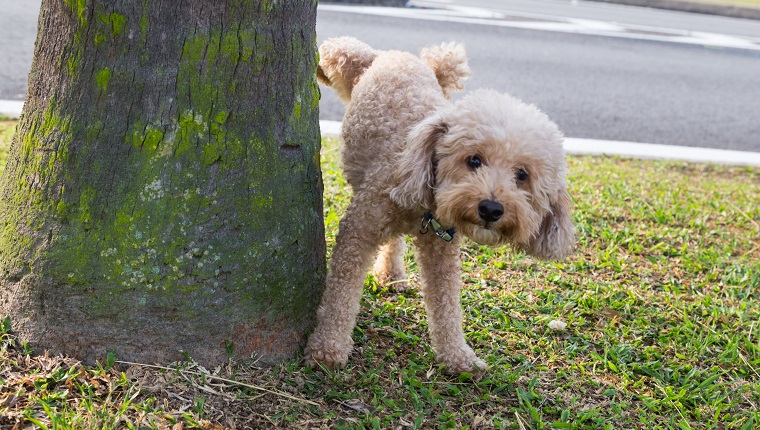Hyposthenuria in dogs is medical condition that is defined as the presence of a chemical imbalance in a dog’s urine. It can result from a number of factors, including hormonal issues, suffering from trauma, and tension in the kidneys.
The condition can cause excessive urination or drinking more water than usual. In general, it may affect all dogs equally, regardless of breed, sex, or age.
If you see signs that your dog is developing issues with urination or water intake, then you must consult your veterinarian for a proper diagnosis and treatment. Here’s what you should know about the symptoms, causes, and treatments of hyposthenuria in dogs.
Symptoms Of Hyposthenuria In Dogs
Hyposthenuria in dogs can produce a number of symptoms that will depend on the underlying cause of the condition. Some of the most frequent symptoms include:
- Drinking a lot more water than usual
- Urinating more than usual
- Bad breath
- Incontinence
Causes Of Hyposthenuria In Dogs

The cause of hyposthenuria in dogs is a chemical imbalance in the urine that often comes from issues with a dog’s antidiuretic hormone (ADH).
Some of the other common factors that can contribute to the condition include:
- Trauma
- Tension around the kidneys
- Diabetes
- Drinking too much water
- Thyroid issues
- Hormonal imbalances
Veterinary Treatments
If you suspect that your dog might be developing hyposthenuria, then your veterinarian will want to conduct a full physical examination along with taking blood and urine tests.
In particular, they’ll determine the gravity of your dog’s urine, which is a measurement that can help your vet figure out how effectively the kidneys are working. In some cases, ultrasound imaging can also help to confirm a diagnosis.
When it comes to treatment, the precise course will depend on identifying the underlying cause of the condition. Vets often use fluid therapy as part their treatment.
In many cases, vets may recommend a course of antibiotics if there is a urinary or bladder infection present. As ever, if your vet prescribes your dog any medication, then you must stick to the precise dosage and frequency instructions and complete the full course of medicine.
Has your dog ever suffered from hyposthenuria? What steps did your vet take to treat your pet? Tell us all about it in the comments below.









